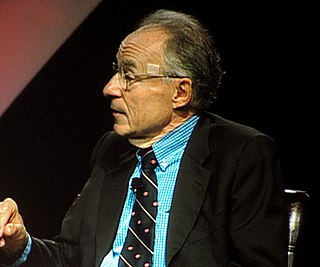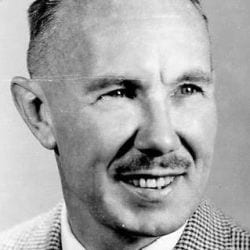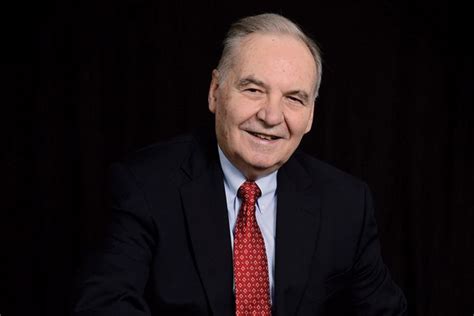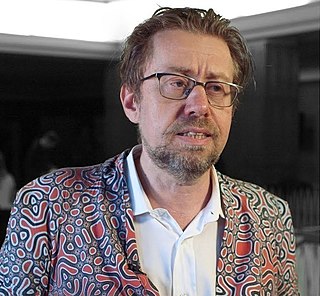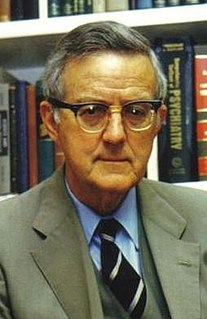A Quote by Arno Allan Penzias
Astronomy leads us to a unique event, a universe which was created out of nothing, and delicately balanced to provide exactly the conditions required to support life. In the absence of an absurdly improbable accident, the observations of modern science seem to suggest an underlying, one might say, supernatural plan.
Related Quotes
But in the end, science does not provide the answers most of us require. Its story of our origins and of our end is, to say the least, unsatisfactory. To the question, "How did it all begin?", science answers, "Probably by an accident." To the question, "How will it all end?", science answers, "Probably by an accident." And to many people, the accidental life is not worth living. Moreover, the science-god has no answer to the question, "Why are we here?" and, to the question, "What moral instructions do you give us?", the science-god maintains silence.
I believe in God. In fact, I believe in a personal God who acts in and interacts with the creation. I believe that the observations about the orderliness of the physical universe, and the apparently exceptional fine-tuning of the conditions of the universe for the development of life suggest that an intelligent Creator is responsible.
Science may explain the world, but we still have to explain science. The laws which enable the universe to come into being spontaneously seem themselves to be the product of exceedingly ingenious design. If physics is the product of design, the universe must have a purpose, and the evidence of modern physics suggests strongly to me that the purpose includes us
In the Middle Ages people believed that the earth was flat, for which they had at least the evidence of their senses: we believe it to be round, not because as many as 1 percent of us could give physical reasons for so quaint a belief, but because modern science has convinced us that nothing that is obvious is true, and that everything that is magical, improbable, extraordinary, gigantic, microscopic, heartless, or outrageous is scientific.
Astrobiology is the science of life in the universe. It's an attempt to scientifically deal with the question of whether or not we're alone in the universe, looking at the past of life, the present of life, and the future of life. It's an interdisciplinary study incorporating astronomy, biology, and the Earth sciences.
If consciousness is the ground of being rather than an epiphenomenon of physical processes, we may find that a basic question asked by modern astronomy and space science- 'Is there life out there?'- should be rephrased. Organic life, as well as intelligence, may already be a property enmeshed in the fabric of the cosmos, brought to fruition through the spiraling dynamics of the solar system and the galaxy, built into the structure of the universe itself.
There was as big a reaction after the revelations about Assad's chemical weapons. Nevertheless, that photograph did strike a singular chord. Which leads us to a larger fact: we don't understand why certain photographs create such an upheaval in one's soul. You look at them and go, "Oh my gosh." And that doesn't happen with television. It's unique to photography. Photographs are unique in that they are a frame abstracted out of reality, out of, in this case, a civil war. A single event can carry so much weight. And that is extraordinary.
Confusion conditions activity, which conditions consciousness, which conditions embodied personality, which conditions sensory experiences, which conditions impact, which conditions mood, which conditions craving, which conditions clinging, which conditions becoming, which conditions birth, which conditions aging and death.
Difficulties arise when reported observations seem to conflict with 'facts' that the majority of scientists accept as established and immutable. Scientists tend to reject conflicting observations.....Nevertheless, the history of science shows that new observations and theories can eventually prevail.
